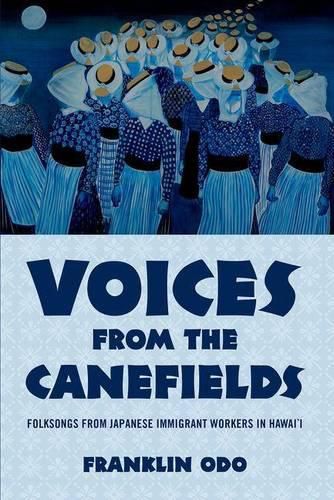Readings Newsletter
Become a Readings Member to make your shopping experience even easier.
Sign in or sign up for free!
You’re not far away from qualifying for FREE standard shipping within Australia
You’ve qualified for FREE standard shipping within Australia
The cart is loading…






Folk songs are short stories from the souls of common people. Some, like Mexican corridos or Scottish ballads, reworked in the Appalachias, are stories of tragic or heroic episodes. Others, like the African American blues, reach from a difficult present back into slavery and forward into a troubled future. Japanese workers in Hawaii’s plantations created their own versions, in form more akin to their traditional tanka or haiku poetry. These holehole bushi describe the experiences of one particular group caught in the global movements of capital, empire, and labor during the late nineteenth and early twentieth centuries. In Voices from the Canefields author Franklin Odo situates over two hundred of these songs, in translation, in a hitherto largely unexplored historical context. Japanese laborers quickly comprised the majority of Hawaiian sugar plantation workers after their large-scale importation as contract workers in 1885. Their folk songs provide good examples of the intersection between local work/life and the global connection which the workers clearly perceived after arriving. While many are songs of lamentation, others reflect a rapid adaptation to a new society in which other ethnic groups were arranged in untidy hierarchical order - the origins of a unique multicultural social order dominated by an oligarchy of white planters. Odo also recognizes the influence of the immigrants’ rapidly modernizing homeland societies through his exploration of the cultural baggage brought by immigrants and some of their dangerous notions of cultural superiority. Japanese immigrants were thus simultaneously the targets of intense racial and class vitriol even as they took comfort in the expanding Japanese empire.
Engagingly written and drawing on a multitude of sources including family histories, newspapers, oral histories, the expressed perspectives of women in this immigrant society, and accounts from the prolific Japanese language press into the narrative, Voices from the Canefields will speak not only to scholars of ethnomusicology, migration history, and ethnic/racial movements, but also to a general audience of Japanese Americans seeking connections to their cultural past and the experiences of their most recently past generations.
$9.00 standard shipping within Australia
FREE standard shipping within Australia for orders over $100.00
Express & International shipping calculated at checkout
Folk songs are short stories from the souls of common people. Some, like Mexican corridos or Scottish ballads, reworked in the Appalachias, are stories of tragic or heroic episodes. Others, like the African American blues, reach from a difficult present back into slavery and forward into a troubled future. Japanese workers in Hawaii’s plantations created their own versions, in form more akin to their traditional tanka or haiku poetry. These holehole bushi describe the experiences of one particular group caught in the global movements of capital, empire, and labor during the late nineteenth and early twentieth centuries. In Voices from the Canefields author Franklin Odo situates over two hundred of these songs, in translation, in a hitherto largely unexplored historical context. Japanese laborers quickly comprised the majority of Hawaiian sugar plantation workers after their large-scale importation as contract workers in 1885. Their folk songs provide good examples of the intersection between local work/life and the global connection which the workers clearly perceived after arriving. While many are songs of lamentation, others reflect a rapid adaptation to a new society in which other ethnic groups were arranged in untidy hierarchical order - the origins of a unique multicultural social order dominated by an oligarchy of white planters. Odo also recognizes the influence of the immigrants’ rapidly modernizing homeland societies through his exploration of the cultural baggage brought by immigrants and some of their dangerous notions of cultural superiority. Japanese immigrants were thus simultaneously the targets of intense racial and class vitriol even as they took comfort in the expanding Japanese empire.
Engagingly written and drawing on a multitude of sources including family histories, newspapers, oral histories, the expressed perspectives of women in this immigrant society, and accounts from the prolific Japanese language press into the narrative, Voices from the Canefields will speak not only to scholars of ethnomusicology, migration history, and ethnic/racial movements, but also to a general audience of Japanese Americans seeking connections to their cultural past and the experiences of their most recently past generations.